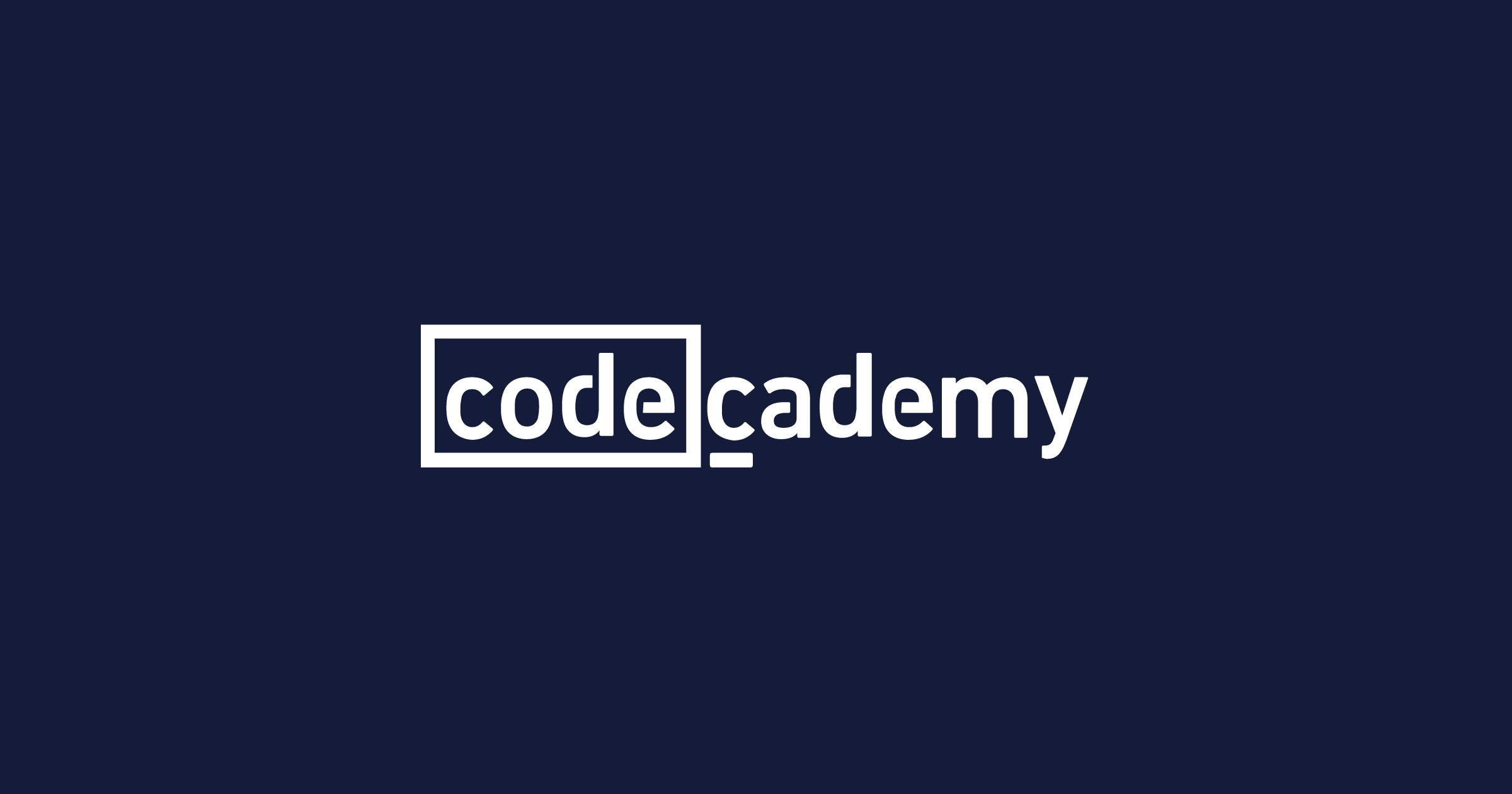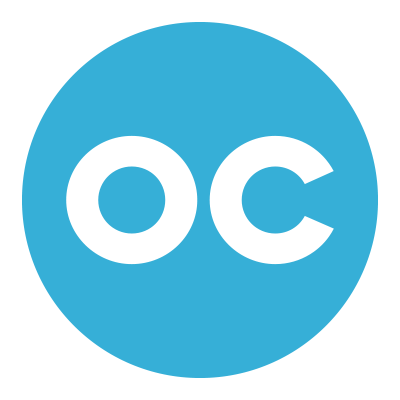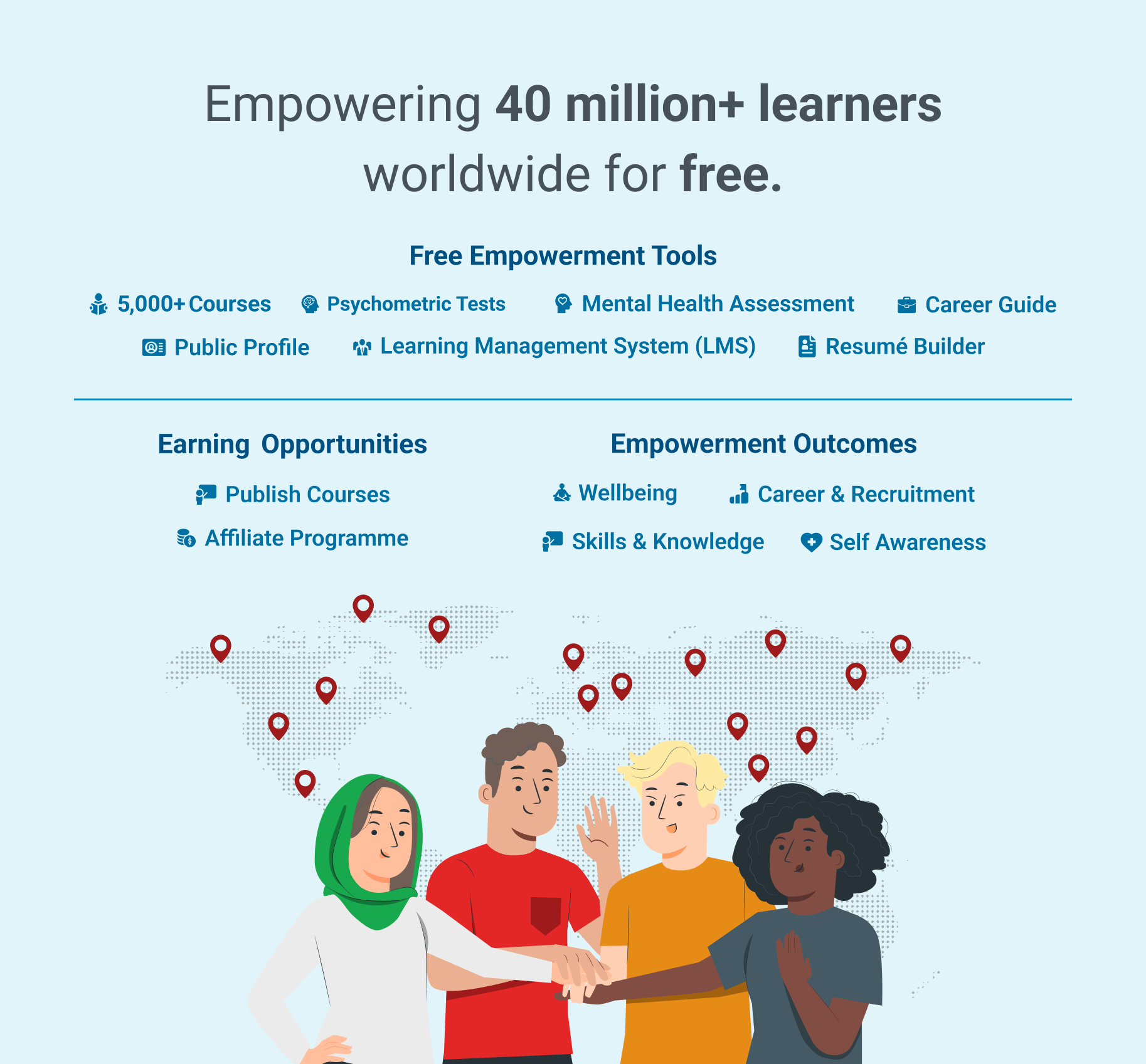Introduction
As hybrid and remote work become the new normal, lifelong learning is more important than ever for staying competitive in today’s job market. Whether you want to change careers, boost your resume, or gain new hard and soft skills, online learning platforms provide flexible and affordable options for career development. This blog analyzes 15 top providers to help you choose the best fit for your goals and learning style.
Methods of Evaluation
To determine the top online course providers, we evaluated each platform based on several key factors: course catalog size and quality, reputation of partner schools or subject matter experts, affordability and access, user experience and interface design, and online learning support services. We also factored in the platform’s search engine optimization performance including number of backlinks, average traffic, and keyword search trends over the past year.
1. LinkedIn Learning
LinkedIn Learning, formerly known as Lynda.com, is an online learning platform owned by LinkedIn that includes thousands of online courses in software, creative, and business skills taught by industry experts. With LinkedIn Learning you get unlimited access to high-quality, self-paced videos that can help you drive innovation, adapt to changing technologies, and build more meaningful careers.
Pros: Some key advantages of LinkedIn Learning include:
– Easy to use platform that allows learning anywhere anytime
– Content covers all skill levels from beginner to advanced
– Access to LinkedIn’s training resources and tools for career development
– Premium LinkedIn membership included with some packages giving additional job search tools
Cons: One potential disadvantage is that the annual subscriptions can be more expensive than other providers for individuals seeking casual learning.
Pricing: LinkedIn Learning offers these paid subscription plans:
– Individual: $29.99/month or $359 annually
– Premium: $99.99/month or $119 annually (includes LinkedIn Premium membership)
– Teams and Enterprise: Pricing varies based on team/organization size
Some key stats about LinkedIn Learning include:
– Over 15,000 online video courses
– New courses added weekly
– Used by individuals, businesses and educational organizations in over 160 countries
– Average learner completion rate of over 70% for courses
2. Harvard Extension School
Founded in 1636, Harvard University is the oldest institution of higher education in the United States. Through its extension school, Harvard offers online courses to learners worldwide. The Harvard Extension School has offered distance education since the late 19th century and today delivers online courses, certificates, and degree programs using innovative technologies and pedagogies.
Pros: Key advantages of Harvard Extension School’s online courses and programs include:
– Official Harvard university branding and rigor of instruction
– Flexible self-paced learning ideal for working professionals
– Microcredentials allow stacking skills toward certificates and degrees
– Prestigious Harvard name carries weight with employers
Cons: The main disadvantage is the cost – as an Ivy League university, Harvard charges high tuition rates even for online programs and courses. Financial aid options are limited for online-only students.
Pricing: Pricing per course ranges from $1,500-$2,300 for undergraduate courses. Certificate programs are priced between $6,000-$15,000 depending on number of courses. Master’s degrees typically cost over $50,000 to complete fully online.
Some key stats about Harvard Extension School’s online offerings include:
– Over 250 online courses available
– microcredentials, certificates, master’s degrees, and bachelor’s degree completion programs available fully online
– Over 15,000 students enrolled in online programs annually
– Courses taught by Harvard faculty using the same curriculum as on-campus programs
3. Stanford Online
Stanford Online is the virtual learning platform from Stanford University, one of the world’s leading research and teaching institutions. Stanford Online offers official online courses, known as Stanford MOOCs (Massive Open Online Courses), directly from Stanford faculty on topics across various subjects.
Pros: Some key advantages of taking online courses through Stanford Online include:
– Official courses from a top-ranked US university known for academic rigor and excellence.
– Self-paced learning allows flexibility to study on your own schedule from anywhere.
– Gain knowledge from Stanford experts and faculty teaching cutting edge topics and research.
– Build your resume and career prospects with verified certificates from a prestigious institution.
Cons: The main disadvantage is that Stanford Online courses are not for-credit and will not earn you a Stanford degree on their own. Formal degree programs require on-campus enrollment and tuition.
Pricing: Stanford Online courses are mostly free to audit without earning a certificate. Verified certificates start at $49 with discounts for multi-course purchases. Financial aid is also available for those who cannot afford the fees.
Some key facts about Stanford Online include:
– Over 300 free online courses available on subjects like artificial intelligence, healthcare, programming, business and more.
– Courses are developed and taught by Stanford faculty and experts from the university.
– Courses can be audited for free or earn a Statement of Accomplishment or verified certificate for a small fee by completing graded assignments.
4. IBM SkillsBuild
IBM SkillsBuild is IBM’s free online learning platform offering courses in areas like cloud computing, cybersecurity, data science and more. Through its catalog of technical and professional skills courses, IBM aims to help individuals gain skills relevant to today’s in-demand jobs. All courses are self-paced and can be accessed anywhere an internet connection is available.
Pros: Some of the key advantages of IBM SkillsBuild include:
– Free to access – there are no fees to enroll or access course content
– Job-relevant skills – courses aim to provide in-demand technical and soft skills
– Flexible learning – courses can be completed at your own pace and schedule
– Career services – the platform offers career advising resources and help with resume building
Cons: One potential disadvantage is that while the courses are high-quality and developed by IBM subject matter experts, they do not provide any official certification upon completion. Learners do not receive a badge or certificate that can be shared with potential employers.
Pricing: IBM SkillsBuild is completely free to use. There are no fees associated with enrollment, accessing course content or utilizing any career services available on the platform. All technical skills training is offered at no cost to individuals.
Some key stats about IBM SkillsBuild include:
– Over 1,000 online courses available
– Courses developed with industry experts
– Courses cover emerging technologies like AI, blockchain, IoT and more
– Over 10 million individuals have enrolled on the platform since its launch
5. Princeton Online
Princeton University is one of the most prestigious universities in the world. Founded in 1746, Princeton offers online courses through their Princeton Online program. Princeton Online provides massive open online courses (MOOCs) that allow learners around the world to experience Princeton-level education from the comfort of their own homes.
Pros: The key advantages of Princeton Online courses include:
– Official Ivy League education from a top university
– Engaging video lectures from renowned Princeton professors
– Lifetime access to high-quality course materials
– Flexible self-paced format for learners of all schedules
– Recognized certificate available upon completion
Cons: One potential disadvantage is that the courses are self-paced and do not provide the structured classroom experience of a traditional online degree program. Learners need self-discipline to stay on track without live classes or deadlines.
Pricing: Princeton Online courses are mostly free to audit. For a small fee, learners can upgrade to a verified certificate of completion. Premium tracks with graded assignments and peer assessments are also available for a moderate fee. Financial aid may be available for eligible learners.
Some key stats about Princeton Online include:
– Over 300 online courses available across a wide range of subjects
– Over 2 million students have enrolled in Princeton Online courses to date
– Courses are self-paced and flexible to fit any schedule
– Courses are taught by Princeton faculty at the top of their fields
6. Coursera
Coursera is one of the largest online learning platforms in the world, offering courses, degrees, certificates and other programs across a wide range of subjects. Founded in 2012, Coursera partners with top universities and companies to provide high-quality online education to learners around the globe.
Pros: Some key advantages of Coursera include:
– Large catalog of courses from top universities around the world
– Flexible online learning – learn at your own pace from anywhere
– Hands-on projects help apply skills learned in a practical way
– Certificates and degrees can help advance careers or change fields
Cons: One potential disadvantage is that Coursera courses do not always provide as personal an experience as in-person classes at a university. The format is primarily self-paced video lectures without live interaction with professors or classmates.
Pricing: Coursera offers various pricing tiers depending on the type of program. Many individual courses are free to audit, while certificates or verifications of completion have a fee. Degree programs vary in cost but are often very affordable compared to traditional universities.
Some key stats about Coursera include:
– Over 100 million users worldwide
– Over 6,000 online courses from 200+ top partners including Stanford, Yale, Imperial College London, Google and IBM
– Offers online degrees, Specializations, Professional Certificates and Guided Projects
7. Khan Academy
Khan Academy is a non-profit educational organization that provides free online learning resources. Founded in 2006, it has the mission of providing a world-class education for anyone, anywhere. The platform offers instructional videos, articles and interactive exercises on a wide range of academic subjects including math, science, computer programming, history and economics.
Pros: Key advantages of Khan Academy include:
– It is completely free to use for both students and teachers
– Wide range of subject material from basic math to computer science
– Progress tracking and personalized learning paths
– Engaging video lessons taught by expert instructors
Cons: One potential disadvantage is that Khan Academy only provides free, online instructional content. It does not offer any formal qualifications or college credits for course completions.
Pricing: Khan Academy offers all of its educational resources completely free of charge. There are no fees or subscriptions required to access videos, articles and exercises on the platform.
Some key stats about Khan Academy include:
– Over 100 million registered users worldwide
– Content available in over 40 languages
– Over 9,000 practice exercises and videos
– Resources cover K-12 level subjects as well as SAT, MCAT and professional exams
8. DigitalOcean DevRel University
DigitalOcean DevRel University provides free training in developer relations and community building skills. As one of the leading online course providers focused specifically on devrel topics, DigitalOcean helps both technical and non-technical professionals learn how to grow, engage, and support developer communities.
Pros: Some key advantages of DigitalOcean DevRel University include:
– Free training – there is no cost to access any of their courses or materials
– Focus on devrel and community skills – the only online learning platform dedicated specifically to these topics
– Practical skills – courses emphasize hands-on projects to build real skills
Cons: The main disadvantage is that as a free online course provider, DigitalOcean DevRel University does not offer any official certifications or accreditation upon completion of courses.
Pricing: DigitalOcean DevRel University offers all of its courses completely free of charge. There are no fees, memberships, or payments required to access any of the training or materials on the platform.
Some key stats about DigitalOcean DevRel University include:
– Over 50 free online courses covering topics like community management, content strategy, open source contributions, and more
– Hands-on projects and activities to apply lessons in each course
– New courses added monthly to keep content up-to-date
9. Edx
EdX is an online learning platform founded by Harvard and MIT in 2012. It offers Massive Open Online Courses (MOOCs) at multiple levels, including full degrees, individual courses, XSeries programs, and professional certificates. All courses are delivered online and can be accessed freely.
Pros: Some key advantages of EdX include its non-profit model which keeps most course content free, the reputed university partners which guarantee quality, and the flexible learning paths available through individual courses, programs and degrees.
Cons: One potential disadvantage is that since most courses are free, the level of support and career guidance provided may be limited compared to paid online programs. Course quality can also vary depending on the partner institution.
Pricing: Most EdX courses are completely free to audit. However, verified certificates ranging from $50 – $500 can be earned by paying a fee and completing extra assignments. Full degree programs through EdX range from around $1000 – $25,000 depending on the partner university and field of study.
EdX has offered over 2,800 courses to over 45 million learners globally. It partners with over 140 top universities and organizations worldwide including Harvard, MIT, Berkeley, Stanford, Autodesk, IBM, and Microsoft to deliver high-quality online learning. Most courses are available for free but some offer verified certificates for a fee.
10. Codecademy
Codecademy is an online interactive platform for learning code. Founded in 2011, Codecademy’s mission is to provide an accessible and engaging way for anyone to learn how to code. With over 50 million learners, it is one of the largest online platforms for coding education.
Pros: Some key advantages of Codecademy include:
– Interactive online platform allows users to learn coding through a smooth guided learning path at their own pace.
– Focuses on teaching practical technical skills rather than theory to help users become job-ready.
– Emphasis is placed on the most in-demand and widely used programming languages.
– Offers both free and premium paid plans.
Cons: One potential disadvantage is that Codecademy is best suited for complete beginners just starting out on their coding journey. It may not provide enough depth or challenging projects for intermediate or advanced coders.
Pricing: Codecademy offers both free and premium subscription plans. The free plan allows access to core coding courses and tutorials. Upgrade to a Pro plan for $19.99/month to access additional features like completion certificates, projects review, offline use, and priority support.
Some key stats about Codecademy include:
– Over 50 million learners have used Codecademy since 2011.
– Codecademy offers courses in 18 different programming languages and technologies including Python, JavaScript, CSS, SQL, and more.
– New courses and learning paths are regularly added to keep content up to date.
11. FutureLearn
FutureLearn is an online education platform that partners with more than 160 top universities and companies worldwide to offer online courses and programs. Since its founding in 2012, FutureLearn has become one of the largest providers of massive open online courses (MOOCs).
Pros: Some key advantages of FutureLearn include:
– World-class course content from top universities such as The Open University, USQ and The University of Sydney
– Flexible self-paced learning – study online according to your own schedule
– Wide range of subject areas covered including sciences, humanities, business and more
– Ability to earn microcredentials and certificates to validate new skills
Cons: One potential disadvantage is the lack of direct interaction with instructors compared to traditional online courses. As a MOOC platform, FutureLearn courses are primarily self-paced learning without live virtual classes.
Pricing: Most FutureLearn courses are free to audit, however there are fees for premium upgrades that include graded assignments and a verified certificate upon completion. Pricing for credentialed courses and programs varies.
Some key stats about FutureLearn include:
– Over 12 million learners enrolled in courses
– Content from 160+ top universities and companies worldwide
– Over 1,500 online short courses and degrees available
– Flexible self-paced learning model allows learners to study on their own schedule
12. OpenCulture
OpenCulture is a non-profit website that provides free educational resources to anyone with internet access. Founded in 2008, OpenCulture aims to build an open source library of online courses, audio books, films, and other media from leading educational institutions and broadcasts.
Pros: Some key advantages of OpenCulture include:
– Entirely free to use educational resources with no ads or signups required.
– Wide range of subjects covered including science, math, humanities, foreign languages and more.
– High-quality courses from top universities that can supplement or replace paid online programs.
– Self-paced learning allowing users to learn on their own schedule.
Cons: A potential disadvantage is that the experience is not as structured as paid online courses since there are no deadlines, assignments or interactions with instructors. This allows for more flexibility but can make it harder for some to stay motivated without external accountability.
Pricing: All content on OpenCulture is completely free to access, with no subscription fees or costs of any kind. Users can learn at their own pace and convenience without worrying about payment.
Some key stats about OpenCulture include:
– Provides over 1,500 free online courses from top universities including Yale, Oxford, MIT, and more.
– Hosts over 800 free full-length documentaries, films, and movies.
– Features audio books from top publishers read by famous actors.
– Receives over 2 million pageviews per month from users around the world.
13. Pluralsight
Pluralsight is a leading online learning platform that provides technology and creative skills training through online courses, learning paths, and assessments. Founded in 2004 and headquartered in Utah, Pluralsight has helped more than 1.5 million professionals across 180 countries gain proficiency in technologies and frameworks like AI, cloud, security, and machine learning.
Pros: Some of the key advantages of Pluralsight include:
– Focus on in-demand tech skills like AI, cloud, cybersecurity etc.
– Hands-on learning paths that take learners from beginner to advanced levels
– Pathfinding algorithms that help users find the right learning paths for their career goals
Cons: One potential disadvantage is that the courses are primarily video-based which may not be suitable for all types of learners
Pricing: Pluralsight offers both individual and team subscriptions. Pricing starts from $29 per month for an individual plan and $149 per user per year for enterprise teams.
Some key stats about Pluralsight include:
– Over 10,000+ online courses created by industry experts
– More than 1.5 million learners across 180 countries
– Topics covered include AI, cloud, cybersecurity, data, design, DevOps, software engineering and more
14. CreativeLive
CreativeLive is an online education platform offering live and on-demand video courses in arts, crafts, design, business and entrepreneurship. Founded in 2011, CreativeLive aims to provide affordable, convenient access to learning opportunities taught by industry experts and leaders. With over 5,000 courses available, CreativeLive has become one of the leading online education providers for creative and business skills.
Pros: Some key advantages of CreativeLive include:
– Affordable membership plans for unlimited access
– Live and on-demand video courses available 24/7
– Wide range of topics across creative arts, design, business and crafts
– Interactive live classes and comment sections for real-time discussions
– Instructors are leaders in their fields to provide high-quality content
Cons: A potential disadvantage is the limited courses available in some niche categories compared to larger competitors. The platform focus is more on creative arts than technology topics.
Pricing: CreativeLive offers three affordable membership plans:
– Basic ($19.99/month): Unlimited access to on-demand courses
– Plus ($29.99/month): Includes live streaming access
– All-Access Annual ($279 annually): Best value plan with all features
Some key stats about CreativeLive include:
– Over 5,000 courses available on a wide range of topics
– More than 2 million students have taken courses on the platform
– Courses are taught by expert instructors and industry professionals
– Live streaming allows for interactive classes in real-time
– Members can access courses on-demand anytime without schedules
15. Alison
Alison is one of the largest free online course providers, founded in 2007 and headquartered in Dublin, Ireland. They offer a wide selection of self-paced online courses across various categories including IT, business, healthcare and more. Courses are designed and delivered by subject matter experts to provide learners with valuable skills and knowledge.
Pros: Some of the main advantages of Alison include:
– Entirely free to access courses and study materials.
– Courses are self-paced and can be accessed anywhere, anytime.
– Provides certificates upon completion to help boost resumes and job applications.
– Intuitive and easy-to-use learning platform.
– Large course library covering a wide range of topics and skill levels.
Cons: One potential disadvantage is that since the courses are free, they do not provide the same level of structure and support as paid online programs. Learners need strong self-motivation skills to stay on track and complete courses independently without deadlines or assistance from instructors.
Pricing: All courses and learning materials on Alison are completely free to access. Upon completion of selected courses, learners have the option to purchase a certificate for a small fee, typically ranging from $10-30, depending on the specific course and credentials received.
Some key stats about Alison include:
– Over 6 million registered users from around the world.
– Offer over 2,000 free online courses.
– Translated courses available in Spanish, Portuguese and French.
– 95% of graduates said the courses improved their career opportunities.
Conclusion
Whether you’re looking to advance an existing career, transition to a new industry, or pursue a personal passion project, these 15 online learning platforms offer diverse, high-quality programs to help you achieve your goals. Do your research to identify the providers and courses that best match your budget and learning needs. Continuous skill-building through online education can help you stay relevant in today’s job market and propel your career to new levels.
















